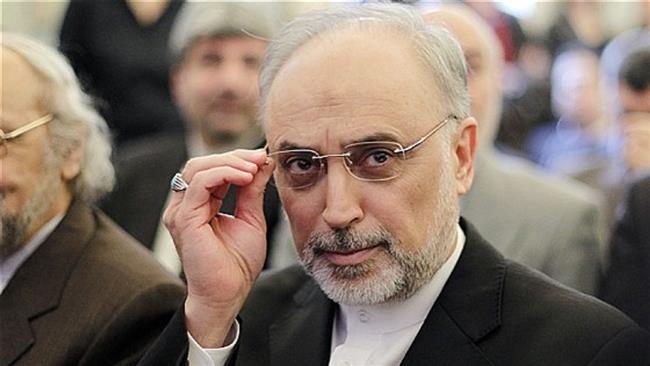Iranian concern that Donald Trump will not continue Obama-era waiver of Congressional sanctions
LATEST
Iran has warned the Trump Administration that the US will be “explicitly” violating the July 2015 nuclear deal if Washington refuses to extend the waiver of nuclear-related sanctions against the Islamic Republic.
Ali Akbar Salehi (pictured), the head of the Atomic Energy Organization, sent out the message on Monday.
Technically, the sanctions mandated by the US Congress were not removed by the deal between Iran and the 5+1 Powers. However, President Obama issued the waiver to ensure that they were not enforced.
With the Trump Administration proclaiming a tough line with Iran, declaring that Tehran is “officially on notice”, speculation has arisen that Donald Trump will not continue the waiver. The US has also maintained and extended sanctions over Iran’s testing of ballistic missiles, alleged support of “terrorism”, and violations of human rights.
The State Department officially confirmed last week, in a letter to a Congressional leader, that Iran is complying with the terms of the nuclear deal. However, Secretary of State Rex Tillerson said the US is reviewing whether sanctions relief “is vital to the national security interests of the United States”. He claimed that the Joint Comprehensive Plan of Action “completely ignored all of the other serious threats that Iran poses” and that it does not “achieve the objective” because it is “buying off a power who has nuclear ambitions; we buy them off for a short period of time and then someone has to deal with it later”.
On Tuesday, officials of Iran and the 5+1 Powers (US, UK, Britain, France, Germany, and Russia) convened in Vienna in the seventh meeting of the Joint Commission monitoring the implementation of the nuclear deal.
Among the issues discussed was Iran’s request to purchase 950 tonnes of concentrated uranium, also known as yellowcake, from Kazakhstan over a three-year period.
Supreme Leader Intervenes in Election, Hits Back at Rouhani Over Economic Approach
In an effective intervention in Iran’s Presidential campaign, the Supreme Leader has implicitly hit back at President Hassan Rouhani over the Islamic Republic’s economic approach.
Ayatollah Khamenei told officials on Tuesday that all candidates need to “promise the people that in order for the country to progress, for economic growth and to untie the knots, their eyes won’t be set outside our borders but on the nation itself”.
To candidates:
Promise the people that for the progress of country, economic development & removing problems you won’t rely on foreigners.— Khamenei.ir (@khamenei_ir) April 25, 2017
On Sunday Rouhani used a campaign speech to link his pursuit of Iranian economic recovery with a foreign policy: “Our nation does not deserve to go back to the times when Iran was in economic isolation.”
That was a coded response to the Supreme Leader’s proclamation of a “Resistance Economy” of self-sufficiency, amid Khamenei’s distrust of the US Government.
The state of Iran’s economy is likely to be the primary issue in the Presidential race, with Rouhani’s main challengers — cleric Ebrahim Raisi and Tehran Mayor Mohammad-Baqer Qalibaf — arguing that the Government has not done enough for trade, investment, and employment.
Raisi said on Tuesday that he will create up to 1.5 million new jobs a year if elected, pointing to the construction sector. Qalibaf, has said his “economic revolution” will generate five million jobs.
Raisi, the head of the billion-dollar religious organization Astan Quds Razavi, has said “structural failure” is the “root” of Iran’s economic problems, called for the reform of the banking system, and promised action against corruption with a report to the public in the first six months of his term. He said in a Tuesday speech:
The people are concerned about the reports published about administrative corruption. How long should the people witness corruption in the country? Isn’t it impossible to eliminate administrative corruption in the country?

